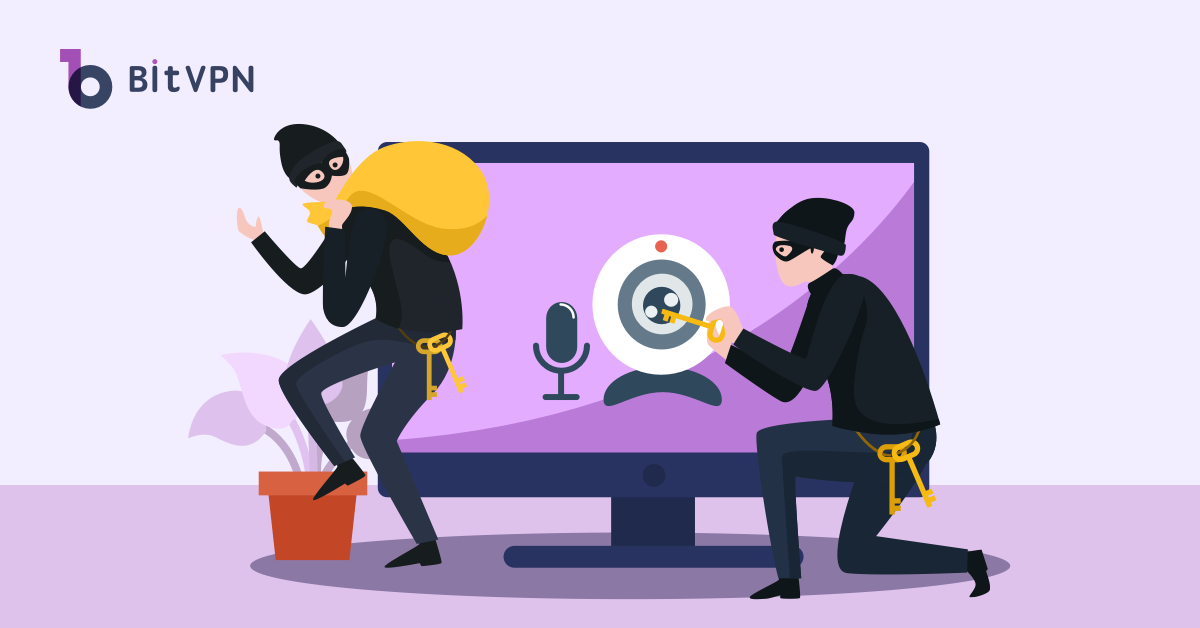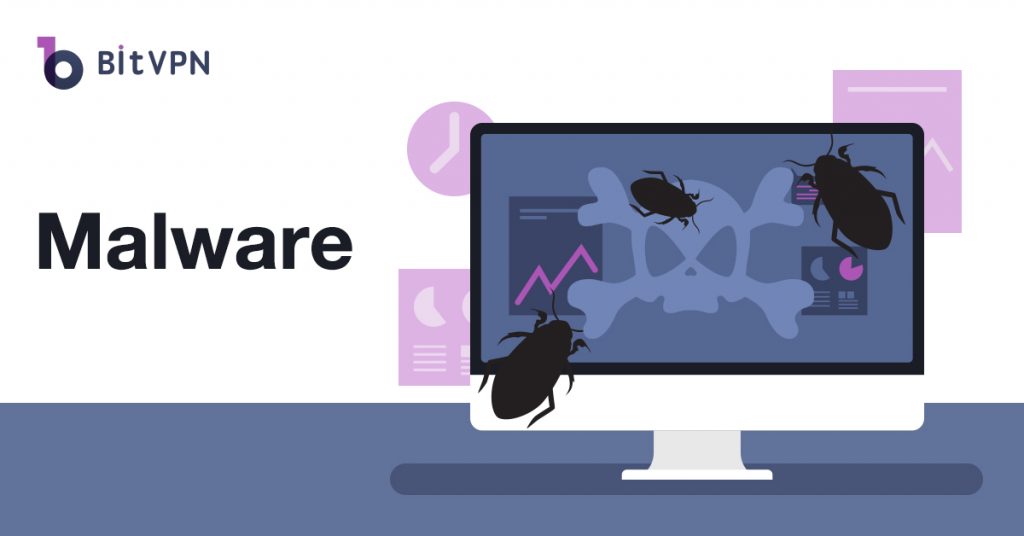Whenever a new application is installed on your phone or computer, you’re building a backdoor for hackers to have access to your online data.
Webcam and microphone are being actively used by the whole world during the pandemic as Skype, Zoom, or FaceTime has been widely used, which is more dramatic than any other period of time.
It’s been estimated that as many as 15,000 private, web-connected cameras are exposed to the general public and your devices can never be excluded from the number.

How Insecure Can Webcam and Microphone be on Your Device?
Webcam and microphone are not evil in themselves, but they play a role as a door through which phishers, malware, or ransomware infect or hack your device.

Signs of Webcam or Microphone Hacking
You are allowed to be informed as your device is being hacked by webcam and microphone hackers.
Sign#1. The indicating light of your webcam is on at odd times.
As the webcam is being used on your device for video conferences with Zoom, the indicating light will be on as it’s working and you can see that through the lenses of the webcam. However, if you find the indicating light on while the application without webcam or microphone access is used, you should be alert.
Sign#2. Your webcam is always turned on whenever your browser is used.
Pay more attention to your webcam as your browser is used. Your webcam and microphone can be always abused by Internet browsers or extensions added to browsers, which is also one of the leading channels for webcam or microphone to be hacked.
To ensure whether it’s the browser or add-ons that activate your webcam or microphone, you can take a test by disenabling all extensions or add-ons on your browser and enabling it one by one to test which extension activates the webcam or microphone.
Sign#3. Unexpected webcam video files are found on your device.
Imagine a situation that you’ve been hacked through a webcam or microphone. Hackers will accumulate your online data from your device so that the data can be used in the future when necessary. When it comes to the online data with a webcam or microphone applied, there must be some video or audio files stored in your device.
Check the hardware of your device, PC, or phone, for the files with videos or audio. If unexpected video or audio files are found, it indicates that your webcam or microphone has been hacked. Such files are usually named with random characters or numbers.
Sign#4. Your device’s security settings are oddly changed.
Malware is sometimes able to change your device’s security settings so as to make them easier to enter your device. Therefore, keep an eye on your device’s security settings to see whether every setting goes smoothly.
If your webcam or microphone is enabled by unexpected applications, it then indicates that your webcam or microphone has been hacked.
Sign#5. You get a message from a hacker.
Money is always the essential aim of hackers.
If you receive a message from hackers forcing you to pay money for access to your files, you’re probably suffering from ransomware. Although it isn’t certain the ransomware you’re suffering from are via webcam or microphones, it’s certain that your device has been hacked.
Worried about Webcam Hacking?
Prevent webcam and microphone hacking via VPN
Tips to Protect Yourself from Being Hacked via Webcam or Microphone
Install Must-Use Apps Only
The fewer apps you install on your apps calling for video and audio features, like zoom, skype, google hangout, call for video and audio features and they always ask you to agree with them to use your camera and microphone. If you don’t agree, the apps will fail to be smoothly used. If you must use them, use the website versions instead.
Check Your Device Permissions
Any app fails to access the camera or microphone on your device unless you allow them to. As you open an app for the first time on your device as it is installed, some permissions are usually asked including your image gallery, camera, microphone, location, etc. Remember: don’t click “allow” too anxiously.
Moreover, you should check your device’s permissions from time to time to guarantee your camera and microphone aren’t accessible to all your applications.
Check an Android phone
Settings > Apps > Advanced > App permissions > Camera > Tap the toggle next to an app to revoke permission.
Check an iPhone
Settings > Privacy > Camera > Tap the toggle next to an app to revoke permission.
Check a Mac
Settings > Security & Privacy > Privacy > Camera > Uncheck the box next to an app to revoke permission.
Check a PC
Settings > Privacy > Camera > Turn off Camera access altogether, or use the toggles next to individual apps to adjust permissions.
Constantly Update your software and firmware
Software and firmware updating is an essential way to protect yourself from hackers. Applications are always kept updating by developers to fix bugs and protect users’ cybersecurity.
Whenever any updating occurs to software and firmware, the logged-in accounts usually call for relog in, or it won’t work as before. That is sometimes troublesome but is really beneficial to protect your accounts.
Do check the applications on your app store from time to time because there will be indications reminding you to update your applications whenever a new version is released.
Use a Tape
Do you remember Mark Zuckerberg’s camera and microphone that have been masked by tape? Although we aren’t him, it’s still a useful and easy way to protect against camera and microphone hacking.

However, such a solution has the disadvantage that it works perfectly on camera, not on the microphone.
Stop Leaving Your Device in a Sleep Mode for a Long Time
It would be so dangerous for your device to be in sleep mode for a long time because your device keeps connected to the Internet without your monitor. On one hand, your device is connected to the Internet; on the other hand, however, your eyes are removed from your device for a long time. As such, your device will be so vulnerable to risks from the Internet.
Use Strong Passwords
Are you using the same password everywhere? Stop doing that from now on. Use strong passwords for all your online accounts, containing numbers, characters, and alphabets. If the same password is used on all your online accounts, all your accounts will be vulnerable once one of your accounts gets hacked.
Think Twice before Clicks
Be cautious about all your clicks. Just think twice before each of your clicks. Viruses can be penetrating every hole of the Internet. Perhaps your click opens a door for viruses.
Easy to Fight Against Webcam Hacking
VPN is the easiest way to protect you online
FOLLOW US
- How to Tell if Someone is Spying on My Phone and How to Stop That
- Ask Your Employees These Questions to Easily Test Their Cybersecurity Awareness
- What’s Computer Hacking and How to Prevent It
- What is Ransomware? Everything You Should Know About Top 1 Possible Cyberattack in 2021
- Affected by Facebook Leak? How to Stay More Private on Social Media